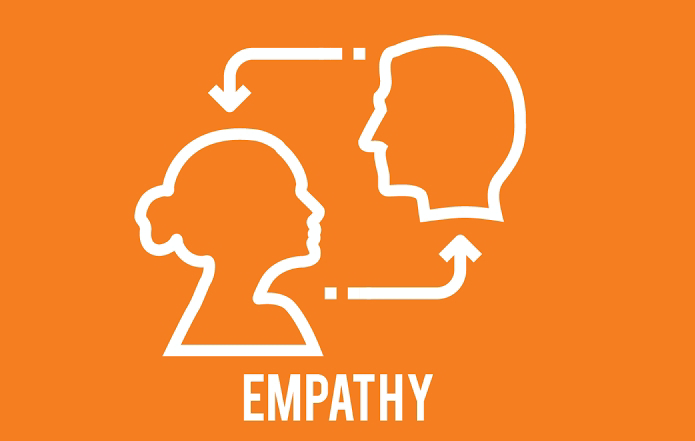HOW LITERATURE CAN MAKE US MORE EMPATHETIC
1.0 Introduction
This talk is a sequel to the abiding attempts by literary scholars to explain the ways in which Literature as a discipline empirically facilitates the creation of a better world where everyone is concerned about the pains and pleasures of one and other. This concern is what I have termed empathy which in all indications is what we all need to cultivate in order to ensure a more harmonious world for ourselves. Therefore, the core of this talk is to explore ways in which being literary can make us more empathetic to one another, particularly in this perilous time of pandemic and prevalent personal tragedies.
1.1 What is Literature?
Literature simply means a body of creative or imaginative works. Writings such as drama text, poem and novels are in the domain of Literature. A notable characteristics of Literature is that it uses language in a peculiar way (organized violence committed on ordinary speech – Roman Jakobson) to address the human conditions in its diversities and complexities. In doing so, it affects our emotions, influence our perception of the world and ultimately makes us more perceptive.
1.2 What is Empathy?
Empathy is often defined as the understanding and sharing the feelings of others. Metaphorically, it means putting yourself in someone else’s shoes. That is allowing ourselves to see things through the perspective of those who are less fortunate or privileged than you. Being empathetic therefore means making honest attempts to make others share in our fortune, opportunities and privileges.
1.3 Why do we need to be empathetic?
We need to be empathetic because:
It is a biblical injunction: As Christians, we have an injunction to be empathetic to one another as Jesus himself showed empathy for the sick, the blind, the deaf, and many more. We can find this injunction in Galatians 6:2 and Mathew 22: 37-40.
Galatians 6:2: Share each other’s burdens, and in this way obey the law of Christ.
Mathew 22: 37-40: Jesus said unto him, Thou shalt love the Lord thy God with all thy heart, and with all thy soul, and with all thy mind.
22:38: This is the first and great commandment.
22:39: And the second is like unto it, Thou shalt love thy neighbour as thyself.
22:40: On these two commandments hang all the law and the prophets.
“Empathy is born out of the old biblical injunction ‘Love the neighbor as thyself.” George S. McGovern
It is a crucial skill to be honed as humans.
We too may need empathy from other at any stage of our lives in the future
1.4 The different ways literature helps to be empathetic:
1. Reconciliation: Literature often reconciles us with happenings in the society (social temper), thus graciously allows us share in the struggles and yearnings of other people around us. It increases our social awareness.
Awareness is the starting point of empathy. Awareness here bifurcates into:
Self-awareness: our skills and abilities
Other-awareness: the areas of their needs and hopes
2. Emotional Intelligence: Literature increases our sensibility and sensitivity as it addresses the parts of our beings that are often untouched. It improves our attitudes and attention to the plight of others. Thus we can offer advice and insight on how to manage the plight.
3. Model: Literature set enduring patterns through its thematic preoccupations that are capable of helping us live with others with more meaning, purpose and joy. Through these themes, it often speaks our collective wishes for a world that is devoid of trauma, injustice and oppressions. We often find models in the endeavours of the characters in the texts.
4. Curiosity: Great literature are capable of creating a feeling of wanting to see the culmination of the writer's concern. Readers are often made restless until they see the narrative to its very end. Thus, imbibing this skill and inculcating it into our daily life and interactions with others will ensure we follow up with the needs of others until its culmination (denouement).
1.5 Conclusion
One of the values of Literature is improving our concern for others as we are often provided with examples of characters who are really in dire need of our affections. Let me give us textual illustrations:
Fofo in Amma Darko's Faceless (Novel)
Jimmy Porter in John Osborne's Look Back in Anger (Drama text)
Africans in Agostinho Neto's The Grieved Land of Africa (Poem)
If we look closely at the travails of the protagonists/personas in these texts, we will discover that every human being can experience what bedeviled them and we can as well can find ourselves in a better position to suggest ways to avoid or surmount them. In other words, we do not see these characters on the pages of our book as fictional creations of the authors but as fellow human beings with hopes and dreams.
The main message I want us to take away from this talk is that Read Literature to be More Empathetic. Thank you.
*This is post is a text of a presentation I was supposed to do in the Guild of Ushers' meeting of 16th July, 2022.


Comments
Post a Comment